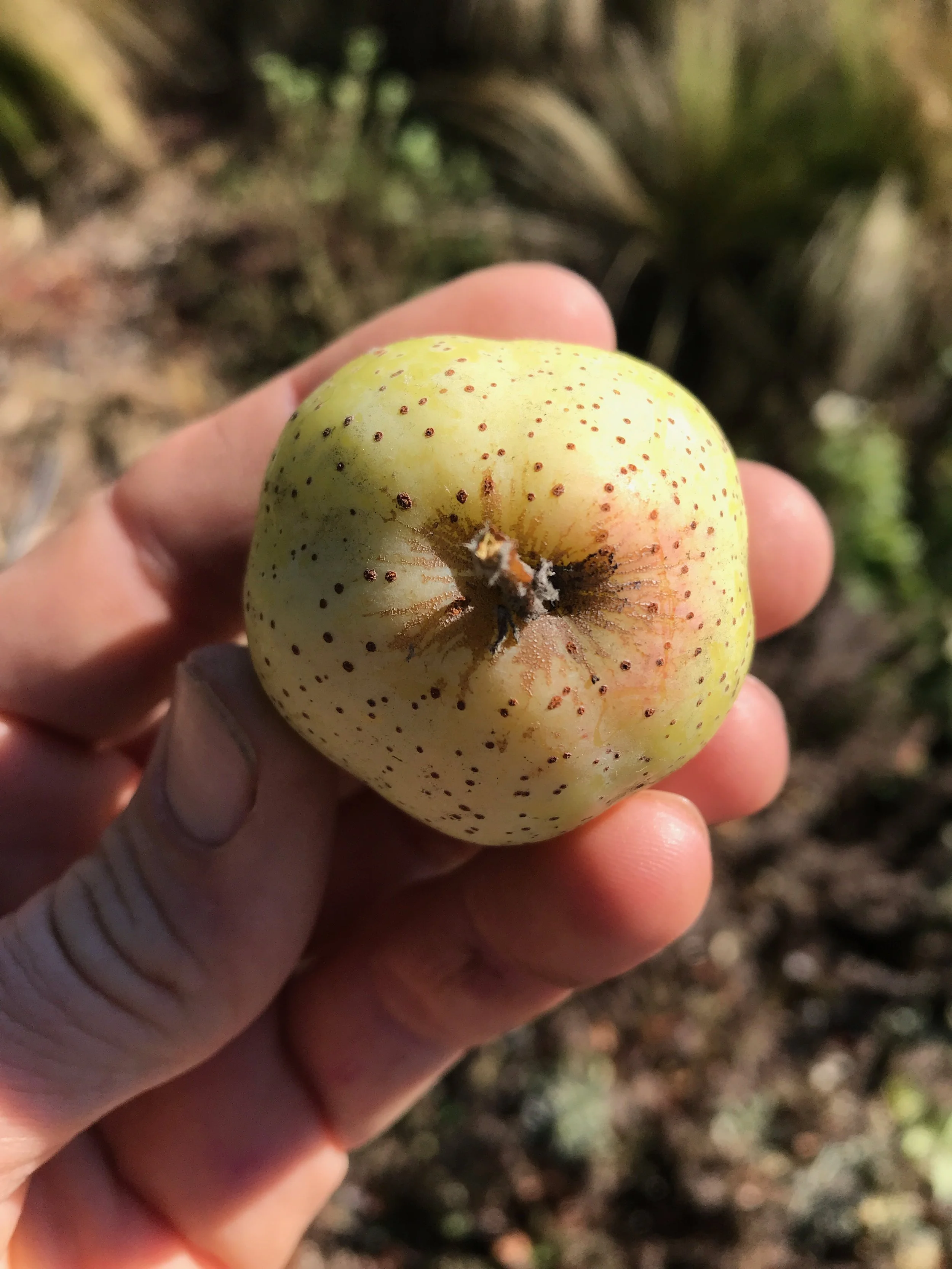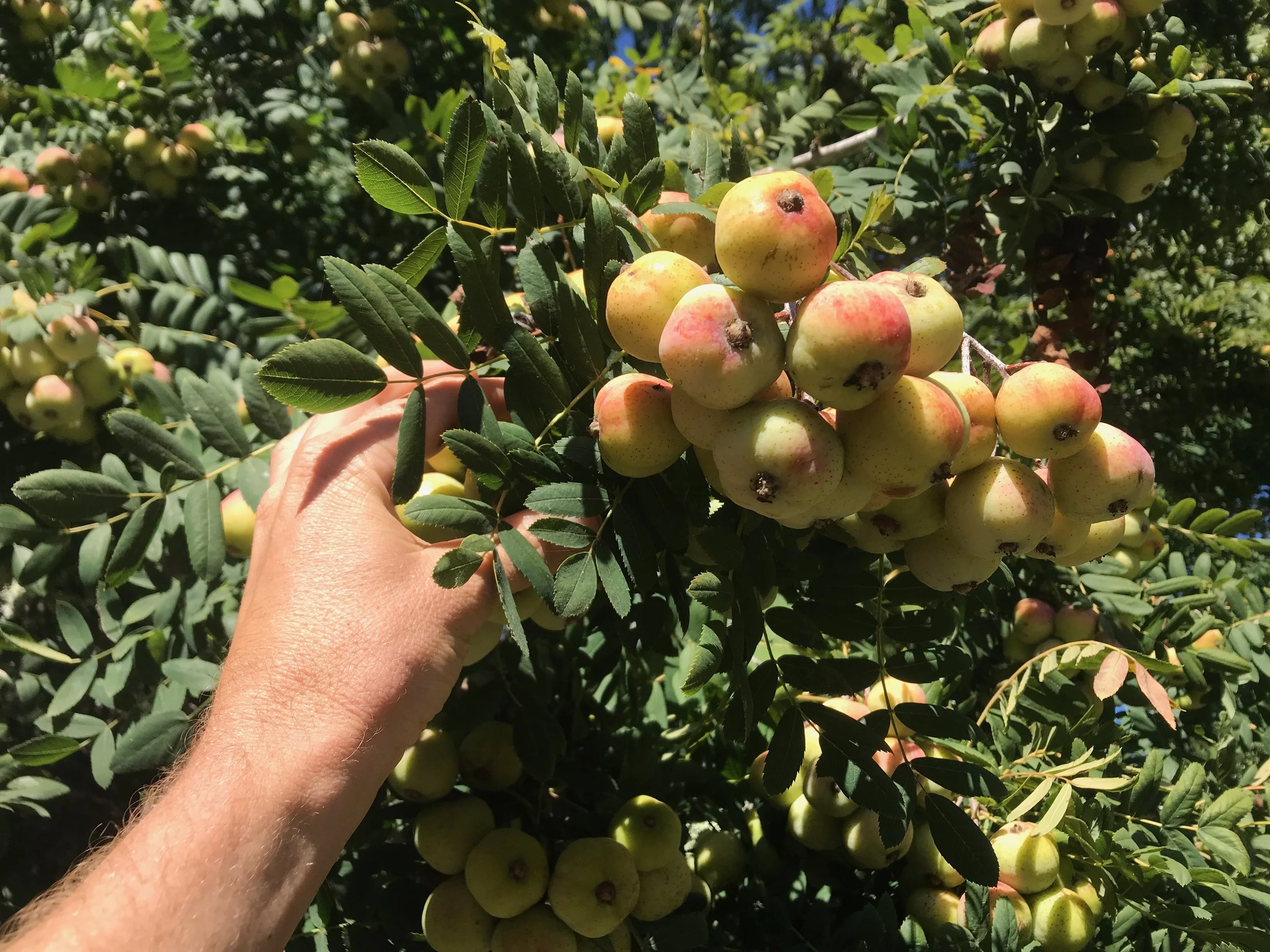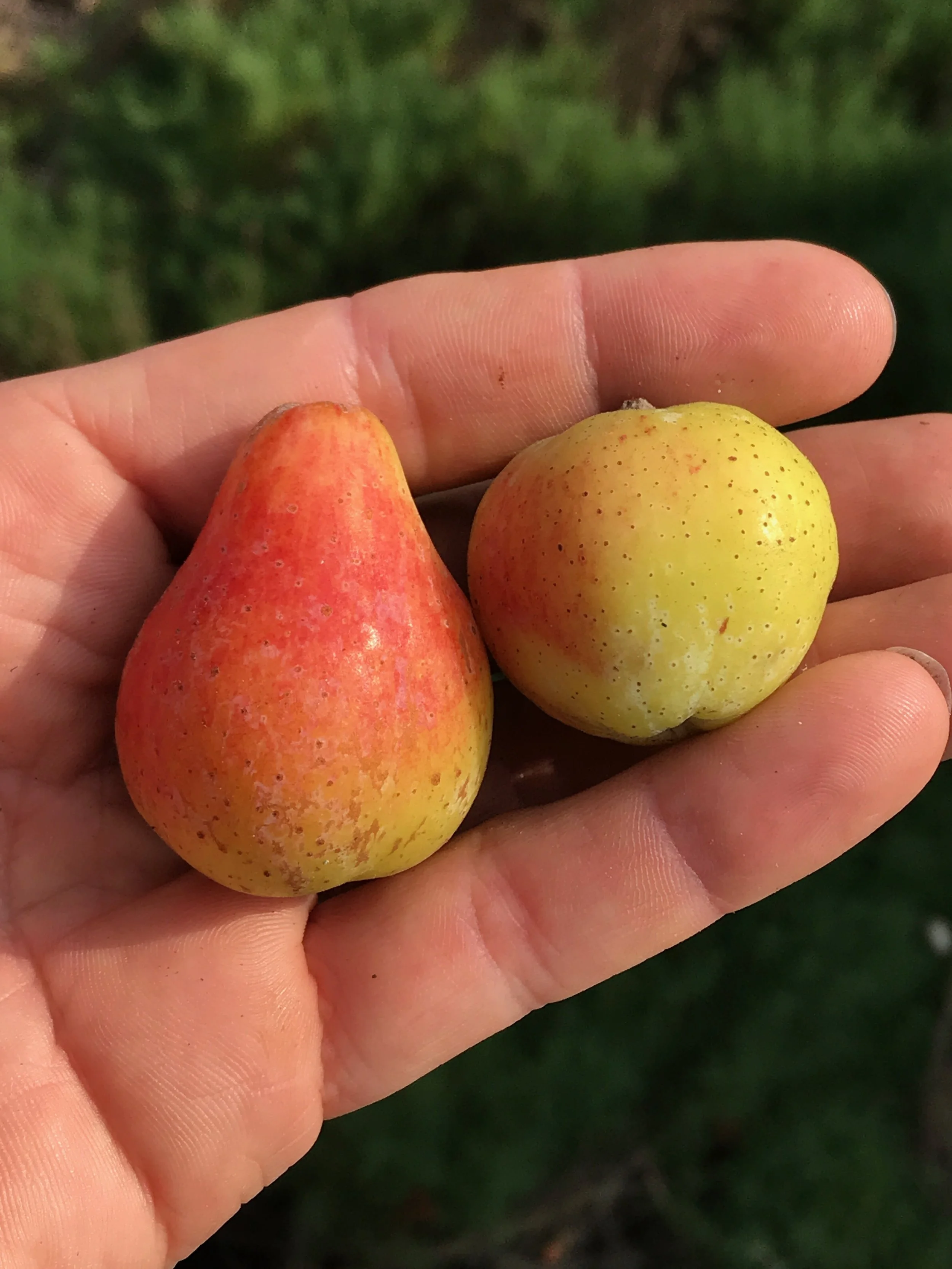The Sorbus domestic tree at Burbank Experimental farm halfway through the fruiting season. Very productive trees.
Sorbus domestica is a species of Sorbus native to western, central and Southern Europe, northwest Africa, and southwest Asia. It may be called true service tree, to distinguish it from wild service tree Sorbus terminals.
Pictured here are S. domestica hybrids, planted by Luther Burbank in Sebastopol, CA. Details of Burbank’s specific interest in this fruit/species are elusive, although it is notable that the still existing trees are prominently located on the grounds of what remains of the former experimental station.
Green Sorbus domestica fruit.
The fruit used to be more popular in Britain and Southern Europe and was historically used to make a cider-like drink, which is still made in some regions.
Picked straight off the tree, the fruit is highly astringent and somewhat gritty. In order to be rendered palatable the fruit must be harvest and left to let (over ripen) for a period of time. During this process the fruit sweetens and become pleasant to eat, with a flavor reminiscent in some ways to apple sauce. Fruits can be dried and eaten like prunes. There are two main forms. S. domestica var. pomifera, which is round. And S. domestica var. pyriformis, which has a pear shape. Both are photographed here.
The tree has attractive orange brown bark that becomes fissured. The tree forms a slow growing domed shape with spreading branches.
In the Moravian Slovakia region of the Czech Republic there is community run museum with an educational trail and festival all surrounding this somewhat obscure tree. The fruit can also be used to make jam, juices and brandy.
In Ancient Greece the fruit was cut in half and pickled, which Plato in the Symposium (190d7-8) lets Aristophanes use as a metaphor for the cutting in half of the original spherical humans by Zeus.
It is a long lived tree with ages ranging between 300 - 400 years in Britain and older trees have been recorded.
The tree is generally rare, listed as an endangered species in Switzerland and Austria and uncommon in Spain.
Considering the productivity of the tree, drought tolerance and potential uses of the fruit, I think Sorbus domestica has much potential for more extensive growing, planting, and further domestication / hybridization.
The plant is susceptible to fireblight and canker.
Almost ripe Sorbus domestica fruit on tree.
During ripening the fruit gets blushed with pinks and reds.
Bletted Sorbus domestica var. pyriformis.
A comparison of Sorbus domestica var. pyriformis (left) and S. domestica var. pomifera (right).





